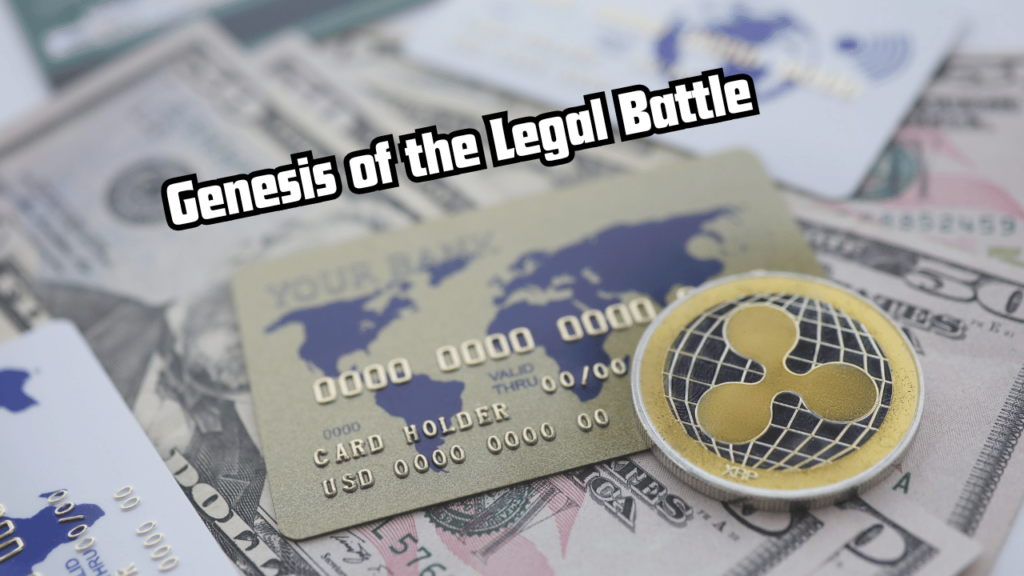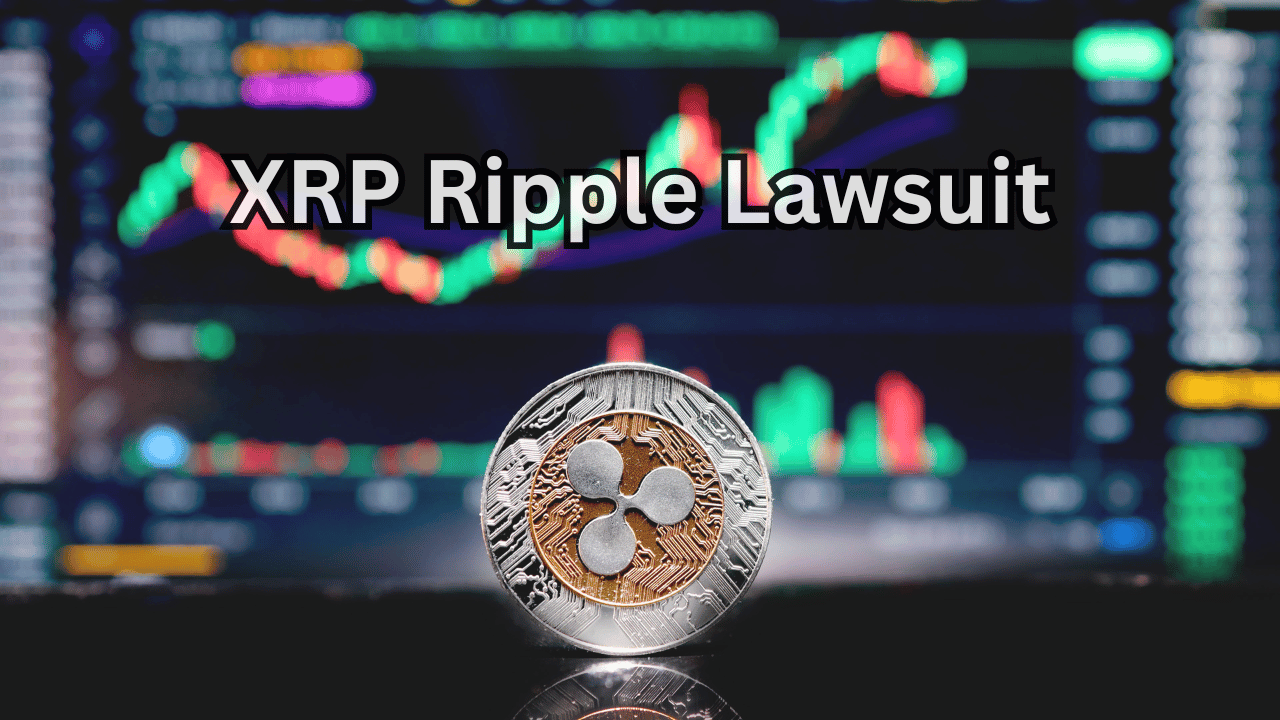With digital currencies changing the face of financial transactions, the XRP Ripple lawsuit is shaping up to be a major legal battle that will affect cryptocurrency regulations and industry standards globally. The dispute between the SEC and Ripple Labs Inc., the company responsible for the XRP token, is central to this legal discussion. Not only does this case establish a standard for future digital currency lawsuits, but it also questions the categorization and regulatory examination of cryptocurrencies.
Understanding Ripple and XRP
It is important to understand Ripple and XRP in the context of the cryptocurrency industry as a whole before diving into the details of the lawsuit. One such tech firm is Ripple Labs Inc., which focuses on protocols for digital payments and currency exchange. The company’s main product, XRP, is a top cryptocurrency because of how well it works to facilitate instant, international payments at a lower cost than conventional banking systems.
Genesis of the Legal Battle

SEC’s Allegations Against Ripple
When the SEC made some serious accusations against Ripple in December 2020, the legal dispute between Ripple Labs and the SEC began. The sale of XRP tokens by Ripple constituted an unregistered securities offering, which the SEC claimed amounted to $1.3 billion. This claim cast doubt on the definition of a security in the modern digital era and thrust Ripple and XRP into the spotlight.
Ripple’s Defense and the Counterargument
A complex and strong response was provided by Ripple in response to the SEC’s claims. The business contended that XRP is not a security because of its practical use in facilitating transactions, which is what sets it apart from more conventional assets. The central argument in the legal proceedings was that the SEC had not given sufficient notice about XRP’s regulatory status, an issue that Ripple had argued about.
A Landmark Decision
A major turning point in the cryptocurrency legal landscape occurred on July 13, 2023. According to U.S. District Judge Analisa Torres’s ruling, Ripple was not in violation of federal securities laws when it sold XRP on public exchanges. Many in the cryptocurrency industry saw this decision as a sign of optimism and a huge win for Ripple.
Mixed Outcome of the Case
The verdict in the case was not totally biased in favor of Ripple, even though they did win. The SEC gained some ground when Judge Torres ruled that institutional investors may have purchased XRP from Ripple in an unregistered securities offering. The need for a well-rounded legislative framework and the complexity of regulating digital currencies are highlighted by this nuanced outcome.
Consequences and Prospects for Cryptocurrency Lawmaking

Effects of the Ripple Lawsuit on the Regulation of Cryptocurrencies
Without a doubt, the precedent for the regulation and perception of cryptocurrencies has been set by the Ripple vs. SEC lawsuit. Its results have ignited debates about the necessity of transparent regulatory standards that safeguard investors and maintain market integrity while embracing the distinctive features of digital currencies.
Significance of the Ripple Victory
Many in the cryptocurrency industry see Ripple’s July 2023 legal victory as a turning point. It challenges the status quo of regulation by calling for a deeper comprehension of digital tokens and their place in the economy.
SEC’s Stance on Cryptocurrencies Post-Ripple Lawsuit
It is possible that the SEC will rethink its strategy for regulating cryptocurrencies in light of its partial loss in the Ripple case. The importance of regulatory bodies being flexible and responsive to the rapidly changing digital currency landscape is underscored by this.
Judge Analisa Torres’ Decision
The Ripple lawsuit’s decision by Judge Analisa Torres is now considered a seminal piece of legal and cryptocurrency-related literature. She has established a major precedent with her ruling, which sheds light on how federal securities laws apply to digital assets.
Distinction Between Public and Institutional Sales
The decision by Judge Torres highlighted, among other things, the distinction between Ripple’s institutional and public sales of XRP. Unlike the latter, which may constitute an unregistered securities offering, the former was determined not to breach federal securities laws. This difference highlights how difficult it is to apply conventional securities laws to bitcoin transactions.
Implications for the Cryptocurrency Market
Investor trust in XRP and related digital assets has taken a hit as a result of the decision, which has real-world consequences for the cryptocurrency market. More widespread adoption and usage of cryptocurrencies may be possible now that the ruling partially removes XRP from the securities label in public exchange contexts.
Fair Notice Defense
Both Ripple’s case and the court’s ruling hinged on the contention that the SEC was negligent in failing to give “fair notice” that the sale of XRP might be viewed as a securities offering. The outcome of this argument may affect the way regulatory bodies interact with cryptocurrency entities and implement regulations in the future.
Ripple Case and Future SEC Guidelines
The decision in the Ripple case will likely impact how the SEC regulates cryptocurrencies. The case might lead the SEC to create more comprehensive regulations for the digital asset industry by establishing a standard for their classification and regulation.
Ripple’s Impact on Global Cryptocurrency Regulation
Governments around the world may rethink their approaches to cryptocurrency regulation in light of the Ripple lawsuit. The case offers a framework for developing regulatory frameworks that can accommodate the unique characteristics of digital currencies, which is important for countries that are trying to find a balance between innovation and investor protection.
Future of XRP and Cryptocurrencies
Not only has the Ripple lawsuit confirmed XRP’s market dominance, but it has also set the stage for further regulatory and legal initiatives in the cryptocurrency space. The Ripple case will probably be used as a guide for understanding the complicated relationship between digital currencies and regulatory supervision as the sector develops further.
FAQs
What was the main issue in the Ripple lawsuit?
As far as U.S. federal securities laws are concerned, the crux of the matter was whether or not Ripple’s XRP sales were unregistered offerings of securities.
Did Ripple win the lawsuit against the SEC?
Judgment on institutional sales was mixed, but Ripple won a major victory when Judge Torres determined that XRP sales to the public did not breach federal securities laws.
What does Ripple’s victory mean for XRP?
With Ripple’s win, XRP can stay listed on public exchanges without being deemed a security, which could boost its value and inspire more confidence in the market.
Will the Ripple case lead to new SEC guidelines?
In order to avoid similar legal uncertainty in the future, the SEC may be prompted to clarify its regulations and guidelines regarding cryptocurrencies in light of the Ripple case.
How does the Ripple lawsuit affect other cryptocurrencies?
This case may affect how other cryptocurrencies are regulated, particularly in regards to whether or not they are considered securities, because it establishes a precedent.
Also Read: Blockchain Technology India
Conclusion
Beyond being just a legal dispute, the “XRP Ripple lawsuit” signifies a turning point in the continuing conversation between the growing cryptocurrency industry and regulatory bodies. A future where regulation and innovation can live in peace is made possible by the Ripple case, which challenges current norms and calls for a nuanced understanding of digital currencies. Even as the dust settles, this historic case’s far-reaching consequences are still playing out, influencing the future of digital currencies and how they fit into the international monetary system.

Timothy Jensen is an expert writer who specializes in the world of cryptocurrencies, including blockchain technology and Bitcoin. He has a passion for explaining complex topics in an easy-to-understand way. Timothy’s work aims to demystify the digital currency landscape for his readers.

